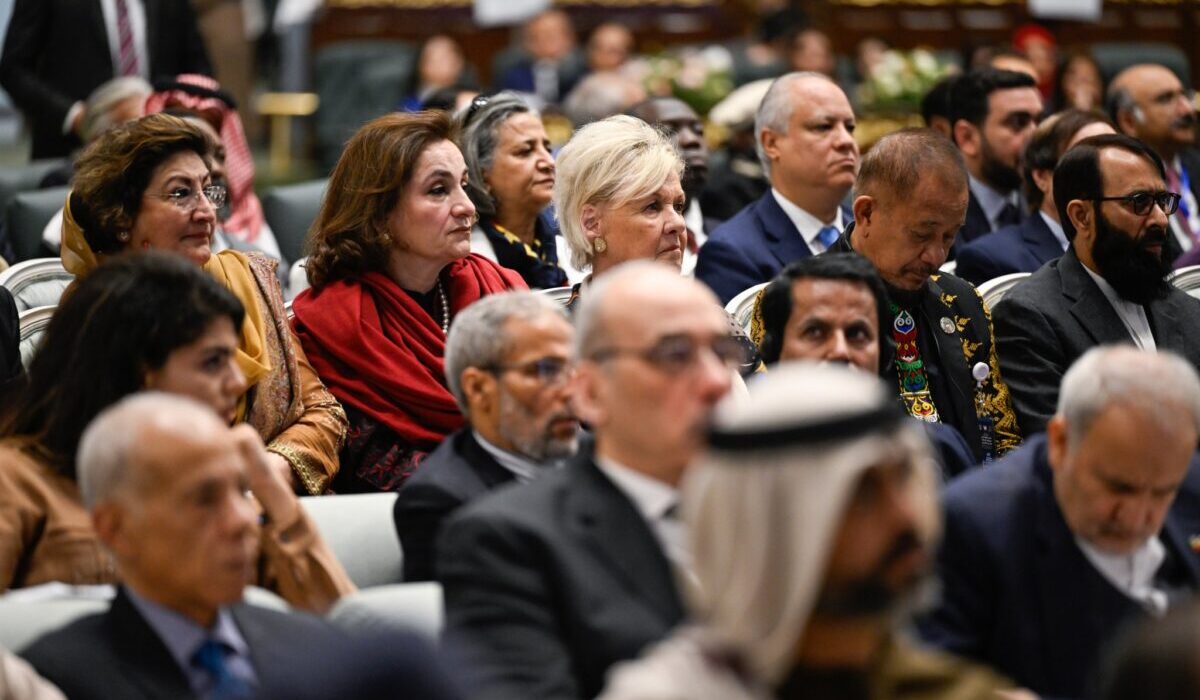ISLAMABAD, Pakistan — Islamic scholars and global representatives gathered on Sunday to issue a resounding call for equal educational opportunities for girls in Muslim-majority countries, declaring that obstructing girls’ education constitutes societal bias against women and a misrepresentation of Islamic teachings.
The appeal was part of the “Islamabad Declaration,” a nine-page statement released at the conclusion of the two-day International Conference on Girls’ Education in Muslim Communities: Challenges and Opportunities. Held in Pakistan’s capital, the conference brought together more than 150 religious scholars, ministers, diplomats, and representatives from organizations such as the Organization of Islamic Cooperation, UNESCO, UNICEF, and the World Bank.
The declaration emphasized that restricting girls’ education is a grave misuse of religious principles to legitimize policies of exclusion, calling on Muslim communities worldwide to address such inequities.
The Islamabad Declaration underscored that girls’ education is not only a religious obligation but also an “urgent societal necessity.”
“It is a fundamental right safeguarded by divine laws, mandated by Islamic teachings, reinforced by international charters, and well-established by national constitutions,” the declaration stated. It called for unified efforts to protect girls’ right to education, emphasizing their empowerment and recognizing the critical role educated women play in building stable families and communities.
“This, in turn, promotes global peace, fosters national harmony, and strengthens societies against challenges such as extremism, violence, crime, and atheism,” it added.
The declaration warned against extremist ideologies, asserting that decrees or opinions rooted in cultural norms that obstruct girls’ education represent a “regrettable perpetuation of societal biases against women.”
“Such actions constitute a grave misuse of religious principles to legitimize policies of deprivation and exclusion,” it said.
The declaration also urged mobilizing resources to advance education through improved methods and curricula, with a particular focus on prioritizing girls’ education at the national level.
“Anyone who rejects or opposes these well-founded Islamic religious principles is, by the consensus of this gathering as referenced in the preamble of this Declaration, considered outside the framework of the Islamic Ummah’s concepts and cannot be regarded as part of it,” the statement declared. It called for the disavowal of such ideologies, whether espoused by individuals, institutions, or entities, public or private.
Taliban absent from the conference
The Taliban, whose policies banning girls’ education beyond sixth grade in Afghanistan have drawn international condemnation, declined an invitation to participate in the conference, according to Khalid Maqbool Siddiqui, Pakistan’s minister for education.
While the declaration did not specifically name Afghanistan, it criticized extremist interpretations of Islam that deny women education and called for action against such practices.
“The pursuit of knowledge is obligatory for all Muslim men and women,” the statement affirmed, rejecting justifications for bans on education as antithetical to Islamic principles.
Malala Yousafzai’s criticism
Pakistani Nobel laureate Malala Yousafzai, who survived an assassination attempt by the Taliban for her advocacy for girls’ education, delivered a powerful speech at the event. She condemned the Taliban’s policies and expressed solidarity with Afghan women and girls.
“Afghan women and girls must be free to shape their own future,” Ms. Yousafzai said, urging Muslim leaders to amplify their support for girls’ rights.
She also turned her attention to Gaza, accusing Israel of decimating the region’s education system during its military operations. “Palestinian children have lost their lives and future,” she said, citing the destruction of 90 percent of schools in Gaza.
The declaration also urged Muslim-majority countries to take tangible steps to expand education for women, including offering scholarships to girls affected by poverty, conflict, and cultural barriers. Participants emphasized the need for legislative reforms to promote gender equity in education across Muslim societies.
“Cultural and social biases masquerading as religious obligations are often at the root of discrimination against women,” the statement noted.
The conference concluded with a united appeal to Muslim communities to dismantle barriers to girls’ education and uphold the universal right to learning, as enshrined in both Islamic values and international law.





